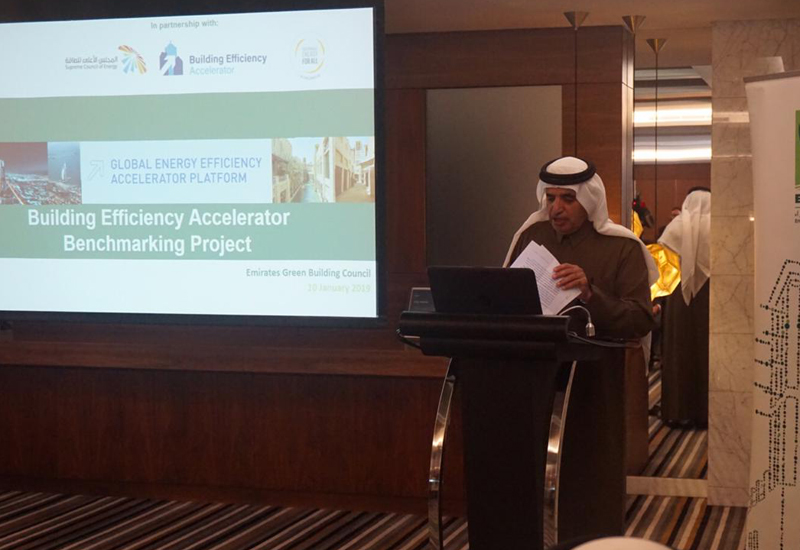Speaking about the findings, Saeed Al Abbar, chairman of Emirates GBC, said: “The project’s main objectives is to promote energy efficiency within Dubai’s existing building stock by providing performance benchmark data to the industry and public sector.”
“We believe this will provide vital information on the performance of existing buildings to policy makers and building owners and will accelerate the uptake of energy retrofits.”
“The findings reveal that there is a strong potential for savings and operational efficiencies that can be achieved through remedial actions such as audits, retrofits, energy management and the use of awareness campaigns or training to drive changes in behaviour.”
“The report also highlights the importance of deep retrofits as a substantial measure in advancing towards 100 per cent Net Zero Carbon Buildings by 2050 and to achieve the goals of the Paris Agreement of keeping global warming well below two degrees celsius.”
His Excellency Secretary General Ahmad Muhairbi, Secretary-General of the Dubai Supreme Council of Energy, said: “Energy sustainability has come to the top of the agenda of the Dubai Government, driven by the visionary leadership of HH Sheikh Mohammed Bin Rashid Al Maktoum, The Ruler of Dubai.”
“Having a direct impact on overall wellbeing of its citizens and residents, sustainability ensures a sound foundation on our journey to improve the image of our local urban life and become the number one city in the world in all aspects.”
“We thank the Emirates Green Building Council for working with us both on meeting our goals within the Accelerator. One of the results of this work is launching of several initiatives within the government, and this publication in particular comes as one of the key deliverables with a broad application to demonstrate joint work between the public and the private sector.”
The BEA project is led by the World Resources Institute (WRI) under the UN programme, Sustainable Energy for All (SEforAll). The aims of the project are to accelerate the implementation of building efficiency policies and programs, and double the global rate of improvement in energy efficiency by 2030.
Dubai is the first and only city in the Middle East committed to the BEA, and Emirates GBC is serving as the BEA City Liaison in partnership with Dubai Supreme Council of Energy (DSCE) to evaluate the energy performance of hotels, schools and malls in the city.
The project was led by Majd Fayyad, technical manager, and Jason John, technical analyst, at Emirates GBC, both of whom also prepared the report.
The report also recommends building on Dubai’s existing strategies and policies to encourage benchmarking across all types of buildings. This will help future mandates for building audits and retrofits for poor performing buildings, thereby paving the way for decarbonisation and net zero buildings.
Majd Fayyad, technical manager, and Jason John, technical analyst, at Emirates GBC led the project and prepared the report.

Advertisement





